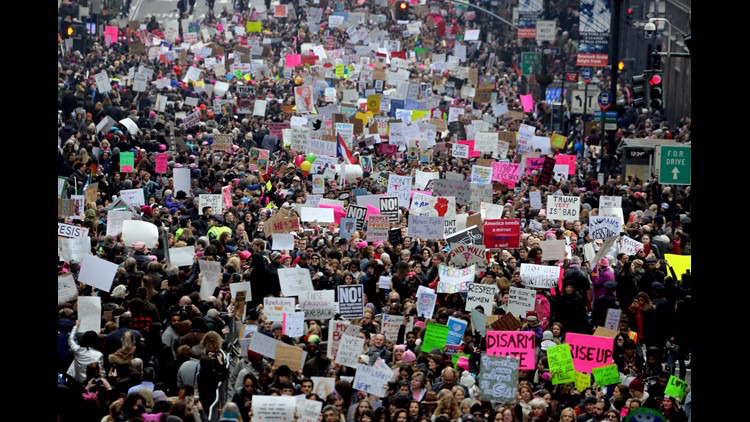Honoring the women who teach meditation, wisdom, compassion and the Dharma

For National Women’s History Month, InsightLA thanks and honors all the women around the globe who teach meditation, wisdom, compassion, and the Dharma in its many forms. This post contains content from a story by Sidney Wegener in The Re/Visionist, an online publication from the Womxn’s History Program at Sarah Lawrence College. Read original article here.
Women are multidimensional and this month is a time to explore, celebrate, respect, and love the infinite ways in which we exist in the world. The term “women” universalizes all women, but not all women share the same story. At the end of this article, I have provided various sources expressing intersectionality under the umbrella identity of woman. I hope to provide material that bridges some understanding between women’s differences and expand the celebration of community during International Women’s History Month.
When women’s experiences are depicted as universal, the identity of “woman” becomes a tool of erasure and works to invalidate those women who do not fit the common narrative.
For example, when we consider the fight for women’s reproductive rights intersex and transgender people are often excluded from how the topic is discussed amongst cisgender women. [1] Furthermore, it is important to acknowledge that reproductive rights are often synonymous with abortion rights, erasing the long history of forced sterilization on Indigenous and Black women against their will and/or without their knowledge. [2]
Women who fight for equal pay in public or professional labor spheres are often white, cisgender, heterosexual, and middle-upper class. Due to this socio-economic agency, women who hold professional careers frequently hire working-class women of color as domestic laborers in order to ease their own double-burden. [3]
When we speak of domestic violence and intimate partner abuse, straight relationships often dominate the conversation, which excludes abusive same-sex or gender queer relations between women. [4] A commonly universalized women’s experience is sexual assault. But how common is it to recognize that Native American and Indigenous women face the highest rates of sexual violence, often at the hands of non-Native or Indigenous men. [5]
Universalizing women’s history and experiences can serve to unite us across race, sexuality, class, and more. However, such homogenization of women’s struggles inevitably results in erasure and exclusion of women who are Black, Brown, Indigenous, immigrant, lesbian/queer, transgender, working-class/impoverished, disabled, aneurotypical, and many other intesectional identities that do not fit into a single narrative.
If Women’s History Month is for all women, then all women’s experiences must be validated and respected.
Want more posts like this delivered weekly to your inbox?
Subscribe to our newsletter for weekly blog posts, inspiration, classes and much more!
